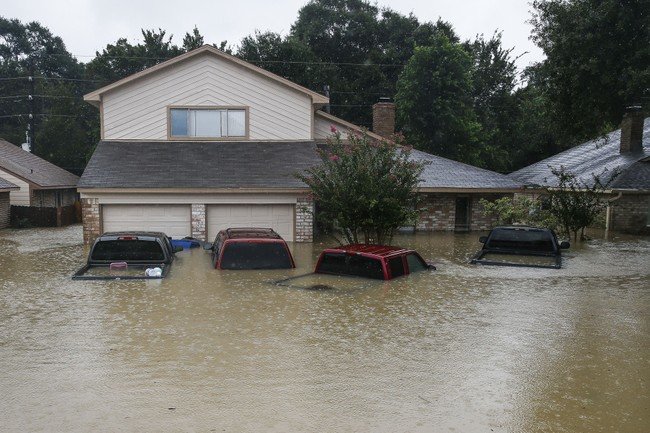It was only a matter of time before our ideologically malleable president began to strike deals between the parties. The result is the $15 billion Harvey relief package, which includes a short-term debt ceiling and government funding increases, along with the promise of a confused negotiation process later this year.
President Donald Trump likely equates dealmaking with getting things done. But not all deals are created equal, and for anyone who believes in fiscal responsibility, this deal, which passed the House and Senate despite many disgruntled members, was particularly bad.
First, given our $20 trillion debt, the only acceptable deal would be one that included a long-term extension of the debt ceiling in exchange for imposing fiscal constraints on spending growth. Instead, the president’s deal extends fiscal uncertainty and debt ceiling drama into December.
The timing is also awful. The need to raise the debt ceiling will once again coincide with the fiscal crisis of the budget negotiations. That will inevitably reinforce the perception that Republicans cannot govern and will lead to more debt and spending. Many Republicans who want to demand budget limits in exchange for raising the debt ceiling will feel they cannot press for them unless they are willing to risk a government shutdown. Others who want a smaller funding bill will agree to more spending to avoid government default.
That’s why Rep. Jim Jordan, R-Ohio, a member of the House Freedom Caucus and a former chairman, has already said the caucus will ask party leadership to separate the next debate on the debt ceiling from broader budget negotiations. Caucus members will also push for a plan that provides unilateral authority to raise the debt ceiling only if Congress sticks to spending limits as a share of gross domestic product that is reduced over time.
Second, Trump’s deal stripped conservative members of the House of Representatives of any leverage they might have had to pass a Harvey relief bill that wasn’t stuffed with non-Harvey pork. With the exception of the $450 billion earmarked for the Small Business Administration, the original House bill held the line nicely on preventing non-emergency events.
Unfortunately, the same could not be said for the Senate amendment, which followed the president’s commitment to Democrats. That amendment then served as the template for the final legislation. On Harvey’s side, it included $7.4 billion for the Department of Housing and Urban Development’s Community Development Block Grant program — which had been on the president’s budget cut list because “the allocation formula misdirects funds to areas of greatest need” and because “many aspects of the program have become outdated.”
But because the Harvey relief was tied to a continuing resolution, voting for the money for Texas also meant, among other things, agreeing to extend the mandate of the Eisenhower Memorial Commission, a project begun in 1999 and described by columnist George Will as “a saga of arrogance and celebrity worship.” He added: “Sixteen years later, and eight years after the project was scheduled to end in 2007, tens of millions have been squandered, and the memorial is gone, with no immediate prospects for its construction.” It also meant voting to extend the problematic Head Start base subsidies and allow for pension increases for former presidents.
He also extended the National Flood Insurance Program through December. Simply put, lawmakers were asked to vote for relief funds along with an extension of a program that creates incentives that put people in harm’s way. “The program is burdened with debt and dysfunctional,” Diane Katz of The Heritage Foundation wrote recently in a study that detailed the NFIP’s problems, adding, “Much of the flood risk maps are outdated, so the National Flood Insurance Program’s premiums do not reflect the true risk. Because property owners do not bear the full cost of flood risk, they are more likely to move into flood-prone areas and are less likely to take preventive measures. The result is that the devastation caused by natural disasters is worse.”
It is an illusion to believe that lawmakers who will have to find ways to pass a budget, raise the debt ceiling and focus on tax reform, among other policy priorities, will be able to deliver the constructive reforms that are so desperately needed.
I’ll end with a warning: As bad as this deal was, I fear there will be more bad deals. For example, there are rumors that Trump could make a deal with Democrats to get rid of the debt ceiling altogether in exchange for tax reform. Imagine how badly that could go.


